
Tous les articles
Triés par date de parution
To slowly suck the life out of a mockingbird
Par Peter Anthony Holder le 26 août 2011
 Today I became part of a jury pool – a group of 200 people who would be whittled down to twelve jurists for a criminal stabbing case; a group that spent the better part of the morning trying to find a loophole that would get them out of jury duty.
Today I became part of a jury pool – a group of 200 people who would be whittled down to twelve jurists for a criminal stabbing case; a group that spent the better part of the morning trying to find a loophole that would get them out of jury duty.
Here in Quebec when the judicial system wants you to fulfill your civic obligation, it sends a letter informing you of where and when to appear, along with a series of reasons why you may be disqualified.
NOUS APPLIQUONS: Graduates need more pragmatic expectations
Par Rima Hammoudi le 26 août 2011
We’ve all heard the 20-something lament before. Some of us struggle through university, surviving off vicious amounts of coffee while juggling thesis statements, part-time jobs and whatever we can muster up to deem as a social life. When our degree is complete we’re sent off to conquer the market with our ‘expertise’ and our entry-level fervor. What we’re met with, of course, are tight-knit industries with little to no room for our amateur portfolios to expand from. Degree or no degree, opportunity is scarce, or at least it seems so from this standpoint. Figuring out what you want to spend your entire life doing is not even half the battle.
Une pensée en équilibre
Par Louise V. Labrecque le 26 août 2011
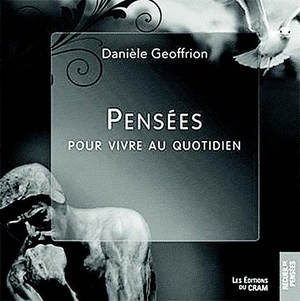 Justement, je souhaite, par la rédaction de cet article, vous entretenir d’un livre intimement et entièrement associé à cette attitude philosophique : « PENSÉES pour vivre au quotidien», deuxième recueil de la très éclairée auteure et philosophe: Danièle Geoffrion, publié aux Éditions du CRAM. De toute évidence, ce livre s’inscrit dans le continuum de la publication du premier recueil « Philosopher pour vivre au quotidien - du sens et des mots -, tout en suggérant une ouverture pour aller plus loin en soi, plus profondément, afin de susciter l’envol de tout ce que l’on porte enfouis, et qui ne demande, souvent, qu’à se laisser happer par la lumière de la réalité.
Justement, je souhaite, par la rédaction de cet article, vous entretenir d’un livre intimement et entièrement associé à cette attitude philosophique : « PENSÉES pour vivre au quotidien», deuxième recueil de la très éclairée auteure et philosophe: Danièle Geoffrion, publié aux Éditions du CRAM. De toute évidence, ce livre s’inscrit dans le continuum de la publication du premier recueil « Philosopher pour vivre au quotidien - du sens et des mots -, tout en suggérant une ouverture pour aller plus loin en soi, plus profondément, afin de susciter l’envol de tout ce que l’on porte enfouis, et qui ne demande, souvent, qu’à se laisser happer par la lumière de la réalité.
Surreal and Serene New York
Par Robert K. Stephen le 26 août 2011
 Returning to New York from the peaceful environs of slow paced Greenport, North Fork of Long Island, which is some 80 miles from New York City, leads one to think of contrasts as New York City’s massive silhouette assaults the senses on approach. New York City is New York City but as all cities do has its own distinct neighbourhoods and character. It is not just a big city but a collection of neighbourhoods and experiences both surreal and serene in the midst of its bustling exterior.
Returning to New York from the peaceful environs of slow paced Greenport, North Fork of Long Island, which is some 80 miles from New York City, leads one to think of contrasts as New York City’s massive silhouette assaults the senses on approach. New York City is New York City but as all cities do has its own distinct neighbourhoods and character. It is not just a big city but a collection of neighbourhoods and experiences both surreal and serene in the midst of its bustling exterior.
Caravaggio the outcast and artist
Par Alan Hustak le 26 août 2011
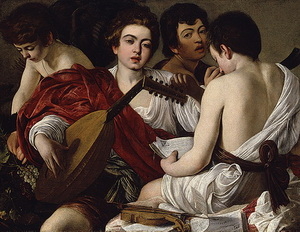 The National Gallery in Ottawa has scored a coup with its blockbuster Caraviggo exhibition that runs until Sept. 11.
The National Gallery in Ottawa has scored a coup with its blockbuster Caraviggo exhibition that runs until Sept. 11.
Caravaggio and His Followers in Rome features ten paintings never before seen in North America, two that have, and another 50 paintings by artists who were influenced by his work. In view of the fact that only 70 of the artists works known to exist, and many of them are altar pieces that cannot be moved, it’s an extraordinary collection.
Nous Appliquons: Graduates need more pragmatic expectations
Par Rima Hammoudi le 2 août 2011
We’ve all heard the 20-something lament before. Some of us struggle through university, surviving off vicious amounts of coffee while juggling thesis statements, part-time jobs and whatever we can muster up to deem as a social life. When our degree is complete we’re sent off to conquer the market with our ‘expertise’ and our entry-level fervor. What we’re met with, of course, are tight-knit industries with little to no room for our amateur portfolios to expand from. Degree or no degree, opportunity is scarce, or at least it seems so from this standpoint. Figuring out what you want to spend your entire life doing is not even half the battle.
GRIFFITH BREWER 1922-2011 Theatre Stalwart
Par Alan Hustak le 2 août 2011
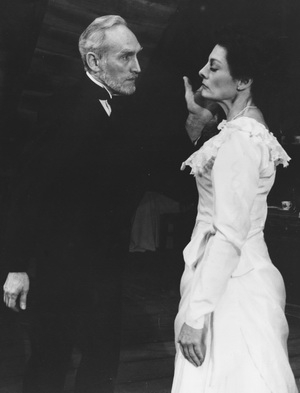 Griffith Brewer was a mainstay of Montreal s English- speaking theatre for almost 80 years. He was an unassuming supporting actor, properties master, director, carpenter and all around handyman who rarely let his ego interfere with his love of the stage. Even after he retired and lost his sight and roles for senior actors became harder to find he was content to play a corpse.
Griffith Brewer was a mainstay of Montreal s English- speaking theatre for almost 80 years. He was an unassuming supporting actor, properties master, director, carpenter and all around handyman who rarely let his ego interfere with his love of the stage. Even after he retired and lost his sight and roles for senior actors became harder to find he was content to play a corpse.
Predictably unpredictable
Par Dan Delmar le 2 août 2011
It is amusing to sift through the thousands of column inches printed in the past couple of months throughout the Rest of Canada as pundits attempt, mostly in vain, to make sense of recent developments in Quebec politics...
The Blogging Bishop
Par Alan Hustak le 18 juillet 2011
 Canada’s newest and youngest Roman Catholic bishop-elect, Thomas Dowd, is a media savy priest who says his appointment as auxiliary bishop of Montreal signals a generational shift in the thinking of the church.
Canada’s newest and youngest Roman Catholic bishop-elect, Thomas Dowd, is a media savy priest who says his appointment as auxiliary bishop of Montreal signals a generational shift in the thinking of the church.
Dowd is expected to shoulder some of the workload now being done by Cardinal Jean-Claude Turcotte. Among his duties, Dowd will be responsible for the city’s 250,000 English-speaking Catholics who have been without a bishop of their own since Anthony Mancini left four years ago to become Archbishop of Halifax.
Claude Léveillée 1932-2011
Par Alan Hustak le 16 juin 2011
Claude Léveillée, who died June 9th at the age of 78, was one of Quebec`s most alluring singers and a poet in the tradition of Felix Leclerc and Gilles Vigneault. Léveillée worked with and wrote 25 songs for the legendary French singer Edith Piaf and another 30 with Gilles Vigneault. Among his best known melodies are Fréderic, Elle Tournera la Terre, Quelques arpents de neiges, Piano Méchanique. His best known hit, perhaps, was Roger Williams recording of Leveillee’s Pour les Amants as Only for Lovers. Léveillée was also an actor seen in Denys Arcand`s Jésus de Montréal and played the character of Émile Rosseau in the 1990 French-language television series Scoop.
When the worst of times become the best of times: a future for liberalism in Canada
Par Alfred Apps le 11 juin 2011
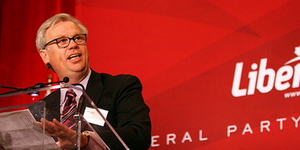 On May 2, 2011, the Liberal Party of Canada suffered the most devastating election defeat of its long and storied history. There can be no doubt about that.
On May 2, 2011, the Liberal Party of Canada suffered the most devastating election defeat of its long and storied history. There can be no doubt about that.
In terms of both elected members and voter support, Liberals swapped places with the NDP. And it all seemed to happen in one fell swoop over the last half of a very short campaign. No sooner had voters pronounced their judgment than the pundits were pontificating.
Election analysis: Bain de sièges
Par Pierre K. Malouf le 10 juin 2011
 Le Québec avait mal au Bloc, les Québécois ont choisi comme traitement de choc un bain de sièges NPD! Que les motifs de tout(e) un(e) chacun(e) de voter pour un candidat du NPD aient été justifiés ou farfelus (et certains étaient sans doute excellents aux yeux de ceux qui ont fait ce choix), le résultat est le même: nous voilà plus que jamais éloignés du pouvoir. Et représentés à Ottawa par des députés dont la majorité des électeurs ne partagent pas les convictions et ne connaissent pas le programme.
Le Québec avait mal au Bloc, les Québécois ont choisi comme traitement de choc un bain de sièges NPD! Que les motifs de tout(e) un(e) chacun(e) de voter pour un candidat du NPD aient été justifiés ou farfelus (et certains étaient sans doute excellents aux yeux de ceux qui ont fait ce choix), le résultat est le même: nous voilà plus que jamais éloignés du pouvoir. Et représentés à Ottawa par des députés dont la majorité des électeurs ne partagent pas les convictions et ne connaissent pas le programme.
Election analysis: Tories and NDP must deal with new pan-Canadian realities
Par Anja Karadeglija le 10 juin 2011
When Stephen Harper first appeared as a prime ministerial candidate, his opponents charged that he harbored a secret agenda, and the strategy helped Paul Martin’s Liberalsdefeat the fledgling Conservatives in the 2004 election. Seven years later – five of them with Harper as prime minister – Canadians decided they liked Harper and his party enough to give him a majority, but the accusationsof a hidden agenda still haven’t disappeared.
Election analysis: The election: A chance for real hope and change
Par David Solway le 10 juin 2011
 On May 2 of this year, Canadians went to the polls and generated a set of electoral results that defied the collective wisdom of the nation’s pollsters, editors, political pundits and think tankers. Conservative Prime Minister Stephen Harper was given the majority government that had eluded him over the previous two election cycles—and a substantial majority it was. The best he could have hoped for, according to the commentariat, was yet another minority government presiding over a fractious, multi-Party House of Commons, with little chance of passing a Conservative budget and implementing Conservative legislation.
On May 2 of this year, Canadians went to the polls and generated a set of electoral results that defied the collective wisdom of the nation’s pollsters, editors, political pundits and think tankers. Conservative Prime Minister Stephen Harper was given the majority government that had eluded him over the previous two election cycles—and a substantial majority it was. The best he could have hoped for, according to the commentariat, was yet another minority government presiding over a fractious, multi-Party House of Commons, with little chance of passing a Conservative budget and implementing Conservative legislation.
Election analysis: What Harper hath wrought
Par Alan Hustak le 10 juin 2011
The True North is undeniably stronger for Conservative supporters following the recent election but is perhaps a little less free for those who believe that liberalism and social justice still matter.
The Harper government’s 15-seat majority puts an end to political uncertainty for the next four years. But the untimely collapse of the Liberal party leaves the country without a voice for non-dogmatic policies, a less invasive government and a fidelity to executive federalism.
Election analysis: Pourquoi le libéralisme est important
Par Beryl Wajsman le 10 juin 2011
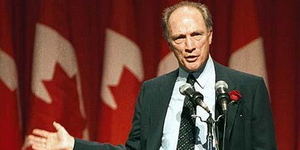 Il semble que l’élément le plus important à retenir de la dernière élection fédérale soit le supposé renouveau de la gauche. En fait, cet élément est un non-événement. Il n'y a pas eu de renouveau de la gauche. On tente ainsi de démontrer que le succès du NPD est d’abord un phénomène québécois enveloppé dans une «énigme» du Québec. On tente aussi de nous faire croire que ces élections signifient un pays divisé et désespérément polarisé entre une droite récalcitrante et une gauche autocrate. Et pourtant, les raisons sont toutes autres : la fatigue des Québécois pour la séparation et l’incapacité pour les libéraux de rallier les Canadiens à travers un message authentique.
Il semble que l’élément le plus important à retenir de la dernière élection fédérale soit le supposé renouveau de la gauche. En fait, cet élément est un non-événement. Il n'y a pas eu de renouveau de la gauche. On tente ainsi de démontrer que le succès du NPD est d’abord un phénomène québécois enveloppé dans une «énigme» du Québec. On tente aussi de nous faire croire que ces élections signifient un pays divisé et désespérément polarisé entre une droite récalcitrante et une gauche autocrate. Et pourtant, les raisons sont toutes autres : la fatigue des Québécois pour la séparation et l’incapacité pour les libéraux de rallier les Canadiens à travers un message authentique.
Election analysis: Post election blues: Splitting hairs on vote splits
Par Johannes Wheeldon le 10 juin 2011
 One of the outcomes of the 2011 Federal election has been interest in how Liberal and NDP voters split the progressive vote, and thus paved the way for a conservative majority. Shouldn't it be easy to understand what role vote splitting played in the 2011 election? Well, yes. And no.
One of the outcomes of the 2011 Federal election has been interest in how Liberal and NDP voters split the progressive vote, and thus paved the way for a conservative majority. Shouldn't it be easy to understand what role vote splitting played in the 2011 election? Well, yes. And no.
Election Analysis: Les dépendantistes
Par Éric Duhaime le 10 juin 2011
La déconfiture du Bloc québécois après l'election pose la question de la survie du parti. Le Bloc est-il mort? Avec seulement quatre députés ayant survécu au naufrage, la reconstruction s’annonce périlleuse, voire impossible.
Election analysis: Better voter representation system needed
Par Duff Conacher le 10 juin 2011
 The $2 per-vote annual subsidy for parties is the most democratic part of the federal political finance system, because it is based on the fundamental democratic principle of one-person, one-vote. While it should be changed to make it more democratic it will be very undemocratic to cut it to zero as the Conservatives propose.
The $2 per-vote annual subsidy for parties is the most democratic part of the federal political finance system, because it is based on the fundamental democratic principle of one-person, one-vote. While it should be changed to make it more democratic it will be very undemocratic to cut it to zero as the Conservatives propose.
Election analysis: No more room in between right and left?
Par David-Éric Simard le 10 juin 2011
We have just witnessed several surprising political upheavals that have changed the Canadian political landscape. Is this ephemeral, or the path we are set on for the next generation? Despite the passage of a few weeks to take it all in, it is still hard to believe that we now live under a majority Conservative government. For many people, it’s difficult to clearly see what has changed and where our country is headed. In our immediate environment, Quebec’s political map has been painted NDP orange while most of Canada’s other regions are now Conservative blue. This clear distinction leaves many of us wondering whether there’s still a place for Liberal red and the Bloc’s light blue on the political horizon beyond the next four years.
Theodore Bikel and the soundtrack of our lives
Par Beryl Wajsman le 10 juin 2011
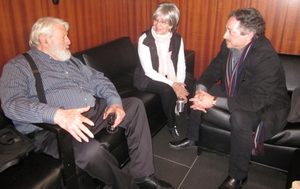 Some things stay with you. More importantly, some people do. They become part of the fabric of who you are. The memory of their piercing glare, their defiant words, their resonant voice and their courageous acts rally your resolve whenever it weakens. It is not even the stirring of memory, for their images never really leave you. Theodore Bikel is all that and more. For in his case there is music, and what music. It is the soundtrack of our lives.
Some things stay with you. More importantly, some people do. They become part of the fabric of who you are. The memory of their piercing glare, their defiant words, their resonant voice and their courageous acts rally your resolve whenever it weakens. It is not even the stirring of memory, for their images never really leave you. Theodore Bikel is all that and more. For in his case there is music, and what music. It is the soundtrack of our lives.
De Tunisie jusqu’en Syrie La révolte de la peur et… le moment de vérité!
Par Alain de Perlycroix le 10 juin 2011
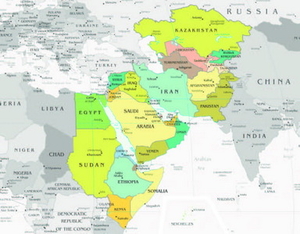 À priori, lorsqu’on voit les peuples arabes se soulever contre leurs dictateurs, on ne peut que s’en réjouir. Toutefois, à bien y penser, l’on se demande si cela permettra pour autant la mise en place d’une démocratie à l’occidentale ou tout simplement l’implantation d’une autre sorte de dictature masquée, quelle soit religieuse ou laïque pro-occidentale.
À priori, lorsqu’on voit les peuples arabes se soulever contre leurs dictateurs, on ne peut que s’en réjouir. Toutefois, à bien y penser, l’on se demande si cela permettra pour autant la mise en place d’une démocratie à l’occidentale ou tout simplement l’implantation d’une autre sorte de dictature masquée, quelle soit religieuse ou laïque pro-occidentale.
Effet domino? Pas vraiment!
Chaos theory for political order in the Arab world
Par Rouba al-Fattal le 10 juin 2011
 As a Board Member of the EuroArab Forum in Brussels and a “specialist” on the Arab world, I am asked daily of what I think is going to happen in the Middle East. Let me be frank, as much as I wish I could predict the future to my own satisfaction, nobody knows what the final outcomes will be. Political analysts and pundits may quench the public thirst for information by providing their sophisticated forecasts, but their chances of getting it right at this early stage are as good as playing the roulette.
As a Board Member of the EuroArab Forum in Brussels and a “specialist” on the Arab world, I am asked daily of what I think is going to happen in the Middle East. Let me be frank, as much as I wish I could predict the future to my own satisfaction, nobody knows what the final outcomes will be. Political analysts and pundits may quench the public thirst for information by providing their sophisticated forecasts, but their chances of getting it right at this early stage are as good as playing the roulette.
Majority economics in a polarized house
Par Robert Presser le 10 juin 2011
Stephen Harper already led the longest-serving minority government in Canadian history before his majority win on May 2nd. After five years of centrist economic management as a necessity for passing budgets as a minority government, Harper now has an opportunity to put his and the Conservative Party’s stamp on the Canadian economy for the coming decade. The question now becomes whether the government will continue to pursue centrist, incremental policies or if it will embrace several big, bold, transformational ideas to leave a lasting effect on the Canadian economy.
A meaner Canada: junk politics and the omnibus crime bill
Par Alex Himelfarb le 10 juin 2011
 Canada’s new Parliament is poised to reshape Canada’s criminal justice system and, in significant ways, Canada itself. Within 100 sitting days of its resumption Parliament will pass an omnibus “tough on criminals” bill that represents the biggest change to our justice system in recent memory. But these changes are coming with disturbingly little controversy or opposition. They are not part of some so-called hidden agenda. This is what most or at least many Canadians voted for and, among those who did not, few seem much worried. Political opposition has been muted. Who wants to be seen as soft on crime, soft on criminals, concerned about inmates?
Canada’s new Parliament is poised to reshape Canada’s criminal justice system and, in significant ways, Canada itself. Within 100 sitting days of its resumption Parliament will pass an omnibus “tough on criminals” bill that represents the biggest change to our justice system in recent memory. But these changes are coming with disturbingly little controversy or opposition. They are not part of some so-called hidden agenda. This is what most or at least many Canadians voted for and, among those who did not, few seem much worried. Political opposition has been muted. Who wants to be seen as soft on crime, soft on criminals, concerned about inmates?
Constitutional challenges that are fair to all Canadians
Par Chris Schafer le 10 juin 2011
In 2007, on behalf of the Canadian Constitution Foundation (CCF), I testified before the House of Commons Standing Committee on Official Languages, in support of the federal government decision to eliminate the Court Challenges Program. The Program provided taxpayer financed assistance for constitutional cases involving language and equality rights. All Canadians, through their tax dollars, paid to advance through the courts the public policy agendas of various special interest groups who received Court Challenges Program funding, whether taxpayers agreed with those agendas or not. This was unfair.
Rights Commission to police: "Change policy on incivilities."
Par Anja Karadeglija le 10 juin 2011
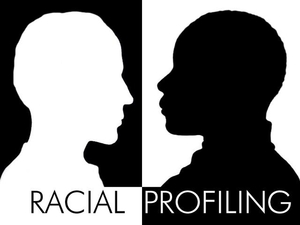 The Quebec Human Rights Commission has released a report tackling racial profiling in Quebec, but whether it’ll make a difference depends on the political will to implement the recommendations, says Fo Niemi,executive director of the Center for Research-Action on Race Relations.
The Quebec Human Rights Commission has released a report tackling racial profiling in Quebec, but whether it’ll make a difference depends on the political will to implement the recommendations, says Fo Niemi,executive director of the Center for Research-Action on Race Relations.
The report notes that racial profiling is often viewed as aproblem exclusive to Montreal, and Niemi says that’s because of the city’s racial diversity.
JEAN-PIERRE GOYER: Born in Ville St. Laurent, long-time MP for Dollard was architect of prison reform
Par Alan Hustak le 10 juin 2011
As Solicitor General in Pierre Trudeau’s government, Jean-Pierre Goyer was the architect of prison reform in Canada. Concerned about both the cost of keeping a prisoner in jail and the rate of recidivism, Goyer promoted a more humane approach to incarceration. During the 1970’s heintroduced better haircuts and better clothing for inmates, inaugurated new housing arrangements that permitted conjugal visits, and made it easier for prisoners to work and go to school. If society really was to be protected, prison he argued, should offer inmates a “more rehabilitative atmosphere.”
A temple of art and music
Par Alan Hustak le 10 juin 2011
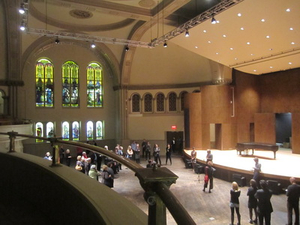 From the natural light that floods the fourth floor Inuit sculpture gallery to the luminous glow of the Tiffany stained glass windows in its concert hall, the Montreal Museum of Fine Arts newest pavilion is as calm and as uplifting as ….. well, a church. Which it once was. The old Erskine American Church, a brownstone Sherbrooke St. landmark since 1894, has been converted into a $40-million temple of art and music known as the Claire and Marc Bourgie Pavillion.
From the natural light that floods the fourth floor Inuit sculpture gallery to the luminous glow of the Tiffany stained glass windows in its concert hall, the Montreal Museum of Fine Arts newest pavilion is as calm and as uplifting as ….. well, a church. Which it once was. The old Erskine American Church, a brownstone Sherbrooke St. landmark since 1894, has been converted into a $40-million temple of art and music known as the Claire and Marc Bourgie Pavillion.
When the medium is part of the message
Par P.A. Sévigny le 10 juin 2011
“It’s a lot of fun,” said Montreal artist Keira Parnell. As the curator of the new Mail-Art exhibition hanging in NDG’s popular Connexions Language School, Parnell said she had a great time putting together the eclectic mix of original postcards that makes up the show. “Once you get involved in the mail-art community, using the mail to send your work is just as important as getting one back.”
“Via Rail/A More Human Way to Travel?”
Par Robert K. Stephen le 10 juin 2011
VIA’s slogan currently reads, “A More Human Way to Travel”. Is this true? I decided to test this a bit further on a recent Toronto to Montreal VIA 1 round trip. A human way to travel means to be treated like a human as opposed to, well let’s say to be innovative, cattle…..you know serve those human needs with comfort, a smile, amenities, food and drink which by the way is the glue that keeps humans talking and interacting with each other wherever they may be!
Why liberalism matters
Par Beryl Wajsman le 4 mai 2011
The biggest story about the supposed resurgent left in this election is that there is no story. Nor is there a resurgent left.
What most current discussion misses in covering the NDP is that the party's success was an overwhelmingly Quebec phenomenon wrapped in a Quebec enigma. It had nothing to do with a nation divided against itself hopelessly polarized between a recalcitrant right and a statocratic left. It had everything to do with Quebecers fatigue with separation and Liberals failure to connect with Canadians through an authentic message.
Maynard Gertler: Editor, publisher, pacifist, farmer and activist (1916-2011)
Par Alan Hustak le 27 avril 2011
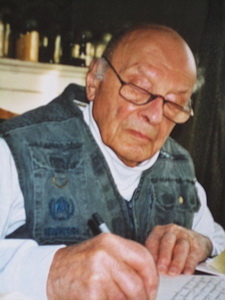 Maynard Gertler was an innovative farmer, civil libertarian, and the headstrong Montreal publisher who was the first to market books by French-Canadian authors in English Canada during the Quiet Revolution so the rest of the country could appreciate what was happening in Quebec in the 60s and 70s.
Maynard Gertler was an innovative farmer, civil libertarian, and the headstrong Montreal publisher who was the first to market books by French-Canadian authors in English Canada during the Quiet Revolution so the rest of the country could appreciate what was happening in Quebec in the 60s and 70s.
Gertler was the founding editor of Harvest House Ltd , once described as “a one man university press,” Harvest House was the first to translate the works of Quebec writers such as Jacques Ferron, Victor-Levy Beaulieu, Anne Hébert, Yves Thériault and the poet Emile Nelligan.
Décision 2011: Des élections inutiles ?
Par Pierre K. Malouf le 21 avril 2011
Il paraît que la majorité des Canadiens ne voulaient pas de nouvelles élections fédérales. Les voilà mis devant le fait accompli. MM. Ignatieff, Layton et Duceppe en voulaient, eux, de nouvelles élections, et Stephen Harper aussi, d’ailleurs, ne soyons pas naïfs. M. Harper a volontairement poussé ses adversaires dans leurs derniers retranchements, il a atteint son but. Les Conservateurs ne demandaient rien d’autre que d’être renversés, ils l’ont été. M. Harper a bien manoeuvré et compte bien faire élire le 2 mai prochain un gouvernement conservateur majoritaire. Aussi ne pouvons-nous le prendre au sérieux quand il affirme que ces élections sont «inutiles».
Décision 2011: Canadian Politics X
Par Akil Alleyne le 21 avril 2011
The bell has been rung, and the Tories, Grits, Dippers and Blocquistes are going another round in their bout for parliamentary supremacy. The ruling Conservatives, of course, are hoping that in their five-year quest for a majority government, the third time will prove to be the charm. Yet from the campaign’s outset, there has been one factor the Tories have lustily exploited, one having little to do with their actual fitness to govern. I refer to the specter of another coalition of Opposition parties snatching the reins of power from Tory hands.
Précédente 17 | 18 | 19 | 20 | 21 | 22 | 23 | 24 | 25 Suivante